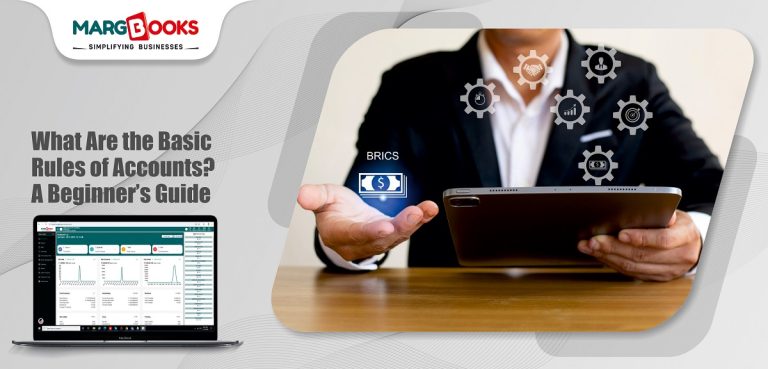When you step into the world of finance and business, one of the very first things you’ll come across is the rules of accounts. These are the foundational principles that govern every financial transaction, whether it’s a small retail shop or a large multinational corporation.
Whether you’re a business owner, student, or just someone curious about accounting, understanding the basic rules of accounts is essential. And with modern tools like online accounting software making life simpler, grasping these concepts has become more accessible than ever.
What Are the Rules of Accounts?
The rules of accounts form the backbone of the double-entry accounting system, where every transaction affects at least two accounts – one gets debited, and the other gets credited.
These rules are broadly categorised into three types of accounts:
- Personal Account
- Real Account
- Nominal Account
1. Personal Account
This type of account deals with individuals, firms, and companies. Whenever a person or organisation gives or receives something, it falls under the personal account category.
2. Real Account
Real accounts relate to tangible and intangible assets like machinery, furniture, buildings, cash, patents, etc.
3. Nominal Account
Nominal accounts include all income, gains, expenses, and losses. These accounts are closed at the end of each financial year and transferred to the profit and loss account.
Why Are These Rules Important?
- Accurate financial recording
- Consistency across transactions
- Transparency for audits and tax compliance
- Reliable profit and loss analysis
The Relevance of Rules of Accounts in the Digital Age
Today, with the rise of online accounting software, the process of recording, managing, and analysing transactions has become faster, error-free, and highly efficient. However, even the best software is based on these very rules.
For instance, when you use a platform like MargBooks, all entries you make follow the double-entry system in the background. Whether you’re generating invoices, managing GST, or tracking expenses, MargBooks ensures all the debit and credit rules are automatically applied.
So, even if you aren’t manually entering journal entries, having a solid understanding of the rules of accounts helps you spot errors, understand reports better, and make smarter business decisions.
Advantages of Using Online Accounting Software
Let’s take a quick look at how software like MargBooks can simplify accounting while staying rooted in traditional accounting principles:
- Automated journal entries – You enter the data; the software handles the debits and credits.
- Real-time reporting – Easily check your profit and loss, trial balance, or ledger statements.
- GST-ready – Automatically comply with GST norms while following accounting rules.
- User-friendly interface – Even beginners can manage accounts without deep technical knowledge.
- Data security & cloud access – Access your books anytime, anywhere, with full data safety.
Whether you run a retail shop, distribution business, or a service company, having the right tool matters – and MargBooks is trusted by thousands across India for its ease, reliability, and localised support.
Common Mistakes Beginners Make
Even with the basics clear, beginners often commit a few mistakes. Here’s what to avoid:
- Confusing account types – Misclassifying an expense as an asset or vice versa.
- Incorrect debit/credit application – Forgetting which account to debit or credit.
- Ignoring supporting documents – Not keeping track of invoices or bills.
- Skipping reconciliation – Not matching books with bank statements can lead to discrepancies.
Understanding and applying the rules of accounts consistently will save you from such errors.
Final Thoughts
The rules of accounts aren’t just for accountants – they are vital for anyone handling money in a business. Once you get the hang of personal, real, and nominal accounts, and their respective rules, everything else becomes much easier to understand.
Pair your knowledge with a reliable online accounting software like MargBooks, and you’ve got yourself a powerful combination. You don’t just save time – you make better financial decisions with confidence.
So, whether you’re managing your own books or planning to hire an accountant, having a solid grip on these basics is your first step towards smart accounting.




